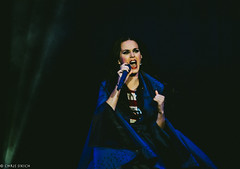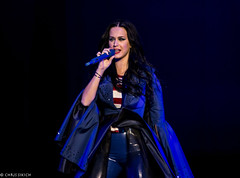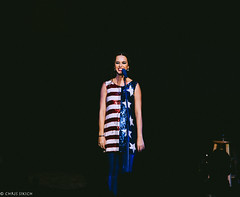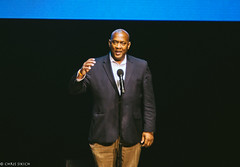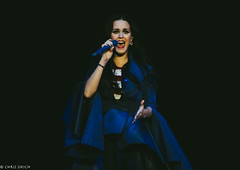*** erotische Kalender 2007-2008 ***
private Bilder Fotos Erotik: Debra-messing
Fotos by www.flickr.com
The filmmakers behind ?Searching? know why you?re skeptical about computer screen movies
UnaWhite posted a photo:
via WordPress ift.tt/2BM8A1v
If you?re not sure about watching a whole movie where your point-of-view is limited to computer and smartphone screens, you?re not alone ? ?Searching? filmmakers Aneesh Chaganty and Sev Ohanian told me they had very similar reservations.
Chaganty said that when the pair was first approached by Timur Bekmambetov?s Bazelevs (the production company behind the ?Unfriended? movies), the idea was to contribute a segment to an anthology of short films set on computer screens. That?s when they came up with the basic plot of ?Searching? ? after a teenaged girl goes missing, her father (played by John Cho) goes through the laptop she left behind in an effort to find her.
But then the studio proposed turning the idea into a feature film, with Chaganty directing, Ohanian producing and the two of them writing the screenplay.
?It was this incredible moment where no filmmaker ever gets this opportunity,? Chaganty recalled. ?But in that instant, I said no.?
It seemed to him that they?d come up with a way to make the format more than a gimmick ?but as a short film. He worried that extending it into a feature might ?stretch it right back into a 90-minute gimmick.?
Chaganty and Ohanian kept talking about the idea, though, and ultimately moved forward after coming up with an opening sequence ? which is indeed the opening sequence of the finished film. It?s a seven-minute montage of footage stored on a desktop computer, which doubles as a compressed (and surprisingly emotional) history of the Kim family.
?In that moment, there was a click, there was a lightbulb that went off, where we realized the potential of this format with this story,? Chaganty said. ?And we realized, despite the films that had existed before, there was a way to make this feel not only new ? but also for once emotional, engaging, cinematic.?
?Searching? is in limited release this weekend, before opening more widely on Friday, August 31. You can read more about how Chaganty and Ohanian actually made the movie in the edited transcript below.
Director/writer Aneesh Chaganty and Debra Messing on the set of ?Searching.?
TechCrunch: How much of this started with the format, and how much with the kidnapping plot?
Sev Ohanian: Honestly, it was almost neither of those things. Aneesh and I are writing partners ? he directs, I produce, we met each other at USC film school. We had made a two-minute short film that takes place on the Google Glasses, if you remember those at all? It kind of blew up ? it was called ?Seeds? ? and one of the results of that was he got hired by Google to come out here and start writing commercials for one or two years.
I?ve been an indie producer for a couple of years now and I had an opportunity to meet with Timur Bekmambetov?s company Bazelevs. He had just released ?Unfriended,? it was super successful, and he asked me if there were any filmmakers I wanted to collaborate with. I immediately thought of Aneesh, of course.
Aneesh Chaganty: When I came in and we had the meeting together, they were like, ?We want to follow-up ?Unfriended? but we don?t want to follow it up with a traditional feature, we want to follow it up with an anthology feature, basically comprised of a bunch of shorts, all of which take place on computer screens.?
Immediately to me, that was a lot more interesting than a feature film, because we had seen all the feature films that took place on screens and none of them were proof that this was a direction we should be going in. A short film, though, I knew we could make it into not a gimmick, which I think all the other films were. [Pauses.] Sort of rude, but whatever.
About a month and a half later, we ended up texting each other with the idea for ?Searching? ? first as a short film, that?s how it started out. Same plot. Basically, Dad breaks into his daughter?s laptop to look at clues to find her.
We thought in eight minutes it could be not a gimmick and really cool and engaging and get out before anyone got bored. And we sent a few pages back to the company and I happened to be in Los Angeles a few weeks later for a Google photo shoot and they called us into a board room. All of a sudden, it was Sev and myself in front of a big table of execs and financiers and all that stuff.
They basically told us, ?Hey, we don?t want to make the short.? We go, ?Well, that?s a bummer.? And they go, ?We want to turn it into a feature. Sev and Aneesh, you guys can write it, we?ll pay you guys to write it, Sev, you can produce it, Aneesh, we?ll pay you to direct your first feature, and we?ll finance the whole thing. What do you guys say??
It was this incredible moment where no filmmaker ever gets this opportunity ? but in that instant, I said no.
Ohanian: He said no!
Chaganty: On my left side, he was like kicking me, like, ?What are you doing?? and everything like that. But in the moment, it felt like what we were being asked to do was take a concept that we had found to not be a gimmick and then stretch it right back into a 90-minute gimmick. And more than that, make a film not because ours had any artistic merit, but because another film was a hit. Not that ours deserved to exist.
And so for the right reasons I said no, and for the right reasons, Sev said, ?We?ll be in touch.? And we left the room and we just kept talking about the enormity of the opportunity, obviously, and how that never happens, despite the parameters of what we were being asked to do. And we were like, ?If we hit a wall, we hit a wall, but we should pay respect to this by talking.?
So for two months we just tried to figure out a way into the story and we couldn?t. Until one day, I was living in Williamsburg at the time, and I was texting Sev, and I was like, ?Hey, I have a really random idea for an opening sequence.? And Sev goes, ?I have an idea for an opening sequence.? And we get on the phone and we pitch each other the exact same opening scene. And to this day, that?s the opening sequence of the film, which is a standalone, very unique seven-minute montage that takes place over 16 years of a family?s life stored on their desktop computer.
In that moment, there was a click, there was a lightbulb that went off, where we realized the potential of this format with this story. And we realized, despite the films that had existed before, there was a way to make this feel not only new, but also for once emotional, engaging, cinematic.
Director/writer Aneesh Chaganty and John Cho on the set of ?Searching.?
Ohanian: Our idea with the opening scene was, we wanted to create something that within five minutes, audiences would just forget that what they were watching was unfolding on screens and just get sucked into the story. Hopefully we did that.
Chaganty: So we put together a longer pitch, because immediately [after] that idea of the opening scene, we were like, ?And I guess the next scene would be this, and the next scene would be this.? And we started plotting it out immediately. We had a structure very quickly.
We sent that structure back to the company, they bought in, they were like, ?We?re paying you guys to do this.? I quit my job at Google, and I got on a flight, moved to L.A. and we made a movie.
TechCrunch: My understanding is that you had created a lot of what happens on the computer screen first, and then John and Debra [Messing] and the other actors were acting on webcams to a certain extent based on what you?d already created.
Chaganty: The way that we like to describe this movie is, we sort of made an animated movie, then shot a live action film, and then put the live action film within the animated film and just kept refining it and refining it.
The reason we started with an animated movie was Sev?s idea, and basically coming from a movie called ?Sky Captain and the World of Tomorrow.? It was made in a very similar way, in the sense that it was made before it was made.
Basically, what we realized was that in our film, there are two cameras. There?s all the footage that you?re seeing on this screen, and then there?s the way that you?re framing it, because the camera in our film is always moving around. We realized those two need to play with each other and also inform one another. We need to know what the final product is going to look like, before we even went to set.
So basically, seven weeks before we even hired the actors, we brought in the editors to the film and took them to a room about this big, with two iMac computers, and said, ?Welcome home.? And literally just said, ?Go.?
They started screen capturing the Internet, like doing text messages, voicemail, whatever, every single thing, zooming in, putting together a cut. And by the end of seven weeks, we had an hour-and-40-minute cut of the entire film, starring me playing every role ? dad, daughter, brother, mother, father. You know, all of the friends, talking to myself. And we would understand how the camera was moving and everything, and how to make this movie.
We showed that cut to the crew the night before we started shooting and it was in that moment that they were like, ?Oh, that?s the movie we?re making.? Because up until that point, this movie is impossible to talk about. Now we have a trailer, we have a poster, it?s all very easy to be like, ?Oh, this is what we made.? But before that I?m saying, ?We?re making a thriller, but it takes place on a computer screen, but it?s going to be really good.? And it?s really hard to sell people on that idea. So for them to finally see what we were thinking was very helpful.
And then on set, John?s character, who?s literally operating the computer in the movie, his eyeline ? he needs to know exactly where every button is, where every cursor moves, where everything pops, where every video message comes in, he always needs to have a perfect eyeline in the film and know what?s happening. We literally needed to show him that temp video as he?s shooting, so he understands where what he?s shooting is actually being placed in the larger film.
Debra Messing and John Cho in ?Searching.?
Ohanian: And the idea with that previz version of the movie was, we wanted the final version of the film to feel polished and cinematic and grab the audience?s attention. It?s a studio movie now with worldwide distribution, but it started off as an indie film. You?ve seen the movie: There?s aerial stuff, car stuff, crowd scenes, water, ravines. We shot it in 13 days.
And part of the idea of doing this version was that we wanted to spend every one of those days making them count as much as we can, and the final product would have consistency and good screen composition and mise en scene and all these amazing things. So it wouldn?t feel accidental, it would feel polished.
TechCrunch: When you were working with the actors, how much did they instinctively know what to do, and how much, given that this is not a format that exists already, did you have to train them for a different kind of acting?
Chaganty: I think every single person on the cast and the crew had to relearn aspects of the job to make this movie. Michelle [La, who plays the daughter Margot] actually says this, that it?s a lot easier for her to behave in front of a screen than it was for John. Maybe it?s a generational thing or whatever, but for us, all the rules visually are different. None of us have ever made another movie like this. I know for a fact, none of us are going to do this again. We?re on-set, we?re all learning together.
I really equate this whole movie with cast and crew holding each other?s hands, we all walk into a dark cave, every single person thinks the person to their right knows a little more than them, but nobody does. And I?m on the far right being like, ?Uh, I don?t know ? ? But jumping in, and at every point of this cave, in the pure darkness, realizing that there?s one person on this crew or cast who knew how to get to this next challenge.
TechCrunch: It sounds like you guys aren?t necessarily looking to make ?Searching 2,? and in fact, I know you already have another project lined up.
Now that you?re at the end of the process, to what extent do you feel that okay, [computer screen movies are a genre] where other directors can come in and do interesting stuff? And to what extent to do you feel like this is probably something that you can make four or five films with, and at the end of it, the possibilities are exhausted?
Chaganty: At the end of the day, I keep saying this, but I think that if you asked Christopher Nolan how many more backwards films are going to happen [after ?Memento?], is he starting a subgenre with backwards films? I don?t think the answer would be yes.
We feel the same way about this movie. This, at the end of the day, is a gimmick. It?s a style of telling the story. We found a way, I think, to make it not that and tell the story first, but at the same time, a computer screen only has set imagery. It?s even more limiting than traditional found footage, because with traditional found footage you can set yourself in Singapore, or Hong Kong, or New York, or whatever. You?re always on a laptop screen with a computer screen film.
Maybe the lesson people will learn from us is something that I?ve learned: There is a way still to show technology accurately and honestly ? because I don?t think Hollywood has done that yet ? using screens and using traditional cinematic language when you?re showing screens. You can still combine that with a live action film, and in a way that feels consistent with your tone and style and genre of whatever larger piece you?re making.
The filmmakers behind ?Searching? know why you?re skeptical about computer screen movies syndicated from antitheftbackpacks.wordpress.com/
25 Aug 2018 13:18:23 -
The filmmakers behind ?Searching? know why you?re skeptical about computer screen movies
UnaWhite posted a photo:
via WordPress ift.tt/2BM8A1v
If you?re not sure about watching a whole movie where your point-of-view is limited to computer and smartphone screens, you?re not alone ? ?Searching? filmmakers Aneesh Chaganty and Sev Ohanian told me they had very similar reservations.
Chaganty said that when the pair was first approached by Timur Bekmambetov?s Bazelevs (the production company behind the ?Unfriended? movies), the idea was to contribute a segment to an anthology of short films set on computer screens. That?s when they came up with the basic plot of ?Searching? ? after a teenaged girl goes missing, her father (played by John Cho) goes through the laptop she left behind in an effort to find her.
But then the studio proposed turning the idea into a feature film, with Chaganty directing, Ohanian producing and the two of them writing the screenplay.
?It was this incredible moment where no filmmaker ever gets this opportunity,? Chaganty recalled. ?But in that instant, I said no.?
It seemed to him that they?d come up with a way to make the format more than a gimmick ?but as a short film. He worried that extending it into a feature might ?stretch it right back into a 90-minute gimmick.?
Chaganty and Ohanian kept talking about the idea, though, and ultimately moved forward after coming up with an opening sequence ? which is indeed the opening sequence of the finished film. It?s a seven-minute montage of footage stored on a desktop computer, which doubles as a compressed (and surprisingly emotional) history of the Kim family.
?In that moment, there was a click, there was a lightbulb that went off, where we realized the potential of this format with this story,? Chaganty said. ?And we realized, despite the films that had existed before, there was a way to make this feel not only new ? but also for once emotional, engaging, cinematic.?
?Searching? is in limited release this weekend, before opening more widely on Friday, August 31. You can read more about how Chaganty and Ohanian actually made the movie in the edited transcript below.
Director/writer Aneesh Chaganty and Debra Messing on the set of ?Searching.?
TechCrunch: How much of this started with the format, and how much with the kidnapping plot?
Sev Ohanian: Honestly, it was almost neither of those things. Aneesh and I are writing partners ? he directs, I produce, we met each other at USC film school. We had made a two-minute short film that takes place on the Google Glasses, if you remember those at all? It kind of blew up ? it was called ?Seeds? ? and one of the results of that was he got hired by Google to come out here and start writing commercials for one or two years.
I?ve been an indie producer for a couple of years now and I had an opportunity to meet with Timur Bekmambetov?s company Bazelevs. He had just released ?Unfriended,? it was super successful, and he asked me if there were any filmmakers I wanted to collaborate with. I immediately thought of Aneesh, of course.
Aneesh Chaganty: When I came in and we had the meeting together, they were like, ?We want to follow-up ?Unfriended? but we don?t want to follow it up with a traditional feature, we want to follow it up with an anthology feature, basically comprised of a bunch of shorts, all of which take place on computer screens.?
Immediately to me, that was a lot more interesting than a feature film, because we had seen all the feature films that took place on screens and none of them were proof that this was a direction we should be going in. A short film, though, I knew we could make it into not a gimmick, which I think all the other films were. [Pauses.] Sort of rude, but whatever.
About a month and a half later, we ended up texting each other with the idea for ?Searching? ? first as a short film, that?s how it started out. Same plot. Basically, Dad breaks into his daughter?s laptop to look at clues to find her.
We thought in eight minutes it could be not a gimmick and really cool and engaging and get out before anyone got bored. And we sent a few pages back to the company and I happened to be in Los Angeles a few weeks later for a Google photo shoot and they called us into a board room. All of a sudden, it was Sev and myself in front of a big table of execs and financiers and all that stuff.
They basically told us, ?Hey, we don?t want to make the short.? We go, ?Well, that?s a bummer.? And they go, ?We want to turn it into a feature. Sev and Aneesh, you guys can write it, we?ll pay you guys to write it, Sev, you can produce it, Aneesh, we?ll pay you to direct your first feature, and we?ll finance the whole thing. What do you guys say??
It was this incredible moment where no filmmaker ever gets this opportunity ? but in that instant, I said no.
Ohanian: He said no!
Chaganty: On my left side, he was like kicking me, like, ?What are you doing?? and everything like that. But in the moment, it felt like what we were being asked to do was take a concept that we had found to not be a gimmick and then stretch it right back into a 90-minute gimmick. And more than that, make a film not because ours had any artistic merit, but because another film was a hit. Not that ours deserved to exist.
And so for the right reasons I said no, and for the right reasons, Sev said, ?We?ll be in touch.? And we left the room and we just kept talking about the enormity of the opportunity, obviously, and how that never happens, despite the parameters of what we were being asked to do. And we were like, ?If we hit a wall, we hit a wall, but we should pay respect to this by talking.?
So for two months we just tried to figure out a way into the story and we couldn?t. Until one day, I was living in Williamsburg at the time, and I was texting Sev, and I was like, ?Hey, I have a really random idea for an opening sequence.? And Sev goes, ?I have an idea for an opening sequence.? And we get on the phone and we pitch each other the exact same opening scene. And to this day, that?s the opening sequence of the film, which is a standalone, very unique seven-minute montage that takes place over 16 years of a family?s life stored on their desktop computer.
In that moment, there was a click, there was a lightbulb that went off, where we realized the potential of this format with this story. And we realized, despite the films that had existed before, there was a way to make this feel not only new, but also for once emotional, engaging, cinematic.
Director/writer Aneesh Chaganty and John Cho on the set of ?Searching.?
Ohanian: Our idea with the opening scene was, we wanted to create something that within five minutes, audiences would just forget that what they were watching was unfolding on screens and just get sucked into the story. Hopefully we did that.
Chaganty: So we put together a longer pitch, because immediately [after] that idea of the opening scene, we were like, ?And I guess the next scene would be this, and the next scene would be this.? And we started plotting it out immediately. We had a structure very quickly.
We sent that structure back to the company, they bought in, they were like, ?We?re paying you guys to do this.? I quit my job at Google, and I got on a flight, moved to L.A. and we made a movie.
TechCrunch: My understanding is that you had created a lot of what happens on the computer screen first, and then John and Debra [Messing] and the other actors were acting on webcams to a certain extent based on what you?d already created.
Chaganty: The way that we like to describe this movie is, we sort of made an animated movie, then shot a live action film, and then put the live action film within the animated film and just kept refining it and refining it.
The reason we started with an animated movie was Sev?s idea, and basically coming from a movie called ?Sky Captain and the World of Tomorrow.? It was made in a very similar way, in the sense that it was made before it was made.
Basically, what we realized was that in our film, there are two cameras. There?s all the footage that you?re seeing on this screen, and then there?s the way that you?re framing it, because the camera in our film is always moving around. We realized those two need to play with each other and also inform one another. We need to know what the final product is going to look like, before we even went to set.
So basically, seven weeks before we even hired the actors, we brought in the editors to the film and took them to a room about this big, with two iMac computers, and said, ?Welcome home.? And literally just said, ?Go.?
They started screen capturing the Internet, like doing text messages, voicemail, whatever, every single thing, zooming in, putting together a cut. And by the end of seven weeks, we had an hour-and-40-minute cut of the entire film, starring me playing every role ? dad, daughter, brother, mother, father. You know, all of the friends, talking to myself. And we would understand how the camera was moving and everything, and how to make this movie.
We showed that cut to the crew the night before we started shooting and it was in that moment that they were like, ?Oh, that?s the movie we?re making.? Because up until that point, this movie is impossible to talk about. Now we have a trailer, we have a poster, it?s all very easy to be like, ?Oh, this is what we made.? But before that I?m saying, ?We?re making a thriller, but it takes place on a computer screen, but it?s going to be really good.? And it?s really hard to sell people on that idea. So for them to finally see what we were thinking was very helpful.
And then on set, John?s character, who?s literally operating the computer in the movie, his eyeline ? he needs to know exactly where every button is, where every cursor moves, where everything pops, where every video message comes in, he always needs to have a perfect eyeline in the film and know what?s happening. We literally needed to show him that temp video as he?s shooting, so he understands where what he?s shooting is actually being placed in the larger film.
Debra Messing and John Cho in ?Searching.?
Ohanian: And the idea with that previz version of the movie was, we wanted the final version of the film to feel polished and cinematic and grab the audience?s attention. It?s a studio movie now with worldwide distribution, but it started off as an indie film. You?ve seen the movie: There?s aerial stuff, car stuff, crowd scenes, water, ravines. We shot it in 13 days.
And part of the idea of doing this version was that we wanted to spend every one of those days making them count as much as we can, and the final product would have consistency and good screen composition and mise en scene and all these amazing things. So it wouldn?t feel accidental, it would feel polished.
TechCrunch: When you were working with the actors, how much did they instinctively know what to do, and how much, given that this is not a format that exists already, did you have to train them for a different kind of acting?
Chaganty: I think every single person on the cast and the crew had to relearn aspects of the job to make this movie. Michelle [La, who plays the daughter Margot] actually says this, that it?s a lot easier for her to behave in front of a screen than it was for John. Maybe it?s a generational thing or whatever, but for us, all the rules visually are different. None of us have ever made another movie like this. I know for a fact, none of us are going to do this again. We?re on-set, we?re all learning together.
I really equate this whole movie with cast and crew holding each other?s hands, we all walk into a dark cave, every single person thinks the person to their right knows a little more than them, but nobody does. And I?m on the far right being like, ?Uh, I don?t know ? ? But jumping in, and at every point of this cave, in the pure darkness, realizing that there?s one person on this crew or cast who knew how to get to this next challenge.
TechCrunch: It sounds like you guys aren?t necessarily looking to make ?Searching 2,? and in fact, I know you already have another project lined up.
Now that you?re at the end of the process, to what extent do you feel that okay, [computer screen movies are a genre] where other directors can come in and do interesting stuff? And to what extent to do you feel like this is probably something that you can make four or five films with, and at the end of it, the possibilities are exhausted?
Chaganty: At the end of the day, I keep saying this, but I think that if you asked Christopher Nolan how many more backwards films are going to happen [after ?Memento?], is he starting a subgenre with backwards films? I don?t think the answer would be yes.
We feel the same way about this movie. This, at the end of the day, is a gimmick. It?s a style of telling the story. We found a way, I think, to make it not that and tell the story first, but at the same time, a computer screen only has set imagery. It?s even more limiting than traditional found footage, because with traditional found footage you can set yourself in Singapore, or Hong Kong, or New York, or whatever. You?re always on a laptop screen with a computer screen film.
Maybe the lesson people will learn from us is something that I?ve learned: There is a way still to show technology accurately and honestly ? because I don?t think Hollywood has done that yet ? using screens and using traditional cinematic language when you?re showing screens. You can still combine that with a live action film, and in a way that feels consistent with your tone and style and genre of whatever larger piece you?re making.
The filmmakers behind ?Searching? know why you?re skeptical about computer screen movies syndicated from antitheftbackpacks.wordpress.com/
25 Aug 2018 13:17:30 -
The filmmakers behind ?Searching? know why you?re skeptical about computer screen movies
UnaWhite posted a photo:
via WordPress ift.tt/2BM8A1v
If you?re not sure about watching a whole movie where your point-of-view is limited to computer and smartphone screens, you?re not alone ? ?Searching? filmmakers Aneesh Chaganty and Sev Ohanian told me they had very similar reservations.
Chaganty said that when the pair was first approached by Timur Bekmambetov?s Bazelevs (the production company behind the ?Unfriended? movies), the idea was to contribute a segment to an anthology of short films set on computer screens. That?s when they came up with the basic plot of ?Searching? ? after a teenaged girl goes missing, her father (played by John Cho) goes through the laptop she left behind in an effort to find her.
But then the studio proposed turning the idea into a feature film, with Chaganty directing, Ohanian producing and the two of them writing the screenplay.
?It was this incredible moment where no filmmaker ever gets this opportunity,? Chaganty recalled. ?But in that instant, I said no.?
It seemed to him that they?d come up with a way to make the format more than a gimmick ?but as a short film. He worried that extending it into a feature might ?stretch it right back into a 90-minute gimmick.?
Chaganty and Ohanian kept talking about the idea, though, and ultimately moved forward after coming up with an opening sequence ? which is indeed the opening sequence of the finished film. It?s a seven-minute montage of footage stored on a desktop computer, which doubles as a compressed (and surprisingly emotional) history of the Kim family.
?In that moment, there was a click, there was a lightbulb that went off, where we realized the potential of this format with this story,? Chaganty said. ?And we realized, despite the films that had existed before, there was a way to make this feel not only new ? but also for once emotional, engaging, cinematic.?
?Searching? is in limited release this weekend, before opening more widely on Friday, August 31. You can read more about how Chaganty and Ohanian actually made the movie in the edited transcript below.
Director/writer Aneesh Chaganty and Debra Messing on the set of ?Searching.?
TechCrunch: How much of this started with the format, and how much with the kidnapping plot?
Sev Ohanian: Honestly, it was almost neither of those things. Aneesh and I are writing partners ? he directs, I produce, we met each other at USC film school. We had made a two-minute short film that takes place on the Google Glasses, if you remember those at all? It kind of blew up ? it was called ?Seeds? ? and one of the results of that was he got hired by Google to come out here and start writing commercials for one or two years.
I?ve been an indie producer for a couple of years now and I had an opportunity to meet with Timur Bekmambetov?s company Bazelevs. He had just released ?Unfriended,? it was super successful, and he asked me if there were any filmmakers I wanted to collaborate with. I immediately thought of Aneesh, of course.
Aneesh Chaganty: When I came in and we had the meeting together, they were like, ?We want to follow-up ?Unfriended? but we don?t want to follow it up with a traditional feature, we want to follow it up with an anthology feature, basically comprised of a bunch of shorts, all of which take place on computer screens.?
Immediately to me, that was a lot more interesting than a feature film, because we had seen all the feature films that took place on screens and none of them were proof that this was a direction we should be going in. A short film, though, I knew we could make it into not a gimmick, which I think all the other films were. [Pauses.] Sort of rude, but whatever.
About a month and a half later, we ended up texting each other with the idea for ?Searching? ? first as a short film, that?s how it started out. Same plot. Basically, Dad breaks into his daughter?s laptop to look at clues to find her.
We thought in eight minutes it could be not a gimmick and really cool and engaging and get out before anyone got bored. And we sent a few pages back to the company and I happened to be in Los Angeles a few weeks later for a Google photo shoot and they called us into a board room. All of a sudden, it was Sev and myself in front of a big table of execs and financiers and all that stuff.
They basically told us, ?Hey, we don?t want to make the short.? We go, ?Well, that?s a bummer.? And they go, ?We want to turn it into a feature. Sev and Aneesh, you guys can write it, we?ll pay you guys to write it, Sev, you can produce it, Aneesh, we?ll pay you to direct your first feature, and we?ll finance the whole thing. What do you guys say??
It was this incredible moment where no filmmaker ever gets this opportunity ? but in that instant, I said no.
Ohanian: He said no!
Chaganty: On my left side, he was like kicking me, like, ?What are you doing?? and everything like that. But in the moment, it felt like what we were being asked to do was take a concept that we had found to not be a gimmick and then stretch it right back into a 90-minute gimmick. And more than that, make a film not because ours had any artistic merit, but because another film was a hit. Not that ours deserved to exist.
And so for the right reasons I said no, and for the right reasons, Sev said, ?We?ll be in touch.? And we left the room and we just kept talking about the enormity of the opportunity, obviously, and how that never happens, despite the parameters of what we were being asked to do. And we were like, ?If we hit a wall, we hit a wall, but we should pay respect to this by talking.?
So for two months we just tried to figure out a way into the story and we couldn?t. Until one day, I was living in Williamsburg at the time, and I was texting Sev, and I was like, ?Hey, I have a really random idea for an opening sequence.? And Sev goes, ?I have an idea for an opening sequence.? And we get on the phone and we pitch each other the exact same opening scene. And to this day, that?s the opening sequence of the film, which is a standalone, very unique seven-minute montage that takes place over 16 years of a family?s life stored on their desktop computer.
In that moment, there was a click, there was a lightbulb that went off, where we realized the potential of this format with this story. And we realized, despite the films that had existed before, there was a way to make this feel not only new, but also for once emotional, engaging, cinematic.
Director/writer Aneesh Chaganty and John Cho on the set of ?Searching.?
Ohanian: Our idea with the opening scene was, we wanted to create something that within five minutes, audiences would just forget that what they were watching was unfolding on screens and just get sucked into the story. Hopefully we did that.
Chaganty: So we put together a longer pitch, because immediately [after] that idea of the opening scene, we were like, ?And I guess the next scene would be this, and the next scene would be this.? And we started plotting it out immediately. We had a structure very quickly.
We sent that structure back to the company, they bought in, they were like, ?We?re paying you guys to do this.? I quit my job at Google, and I got on a flight, moved to L.A. and we made a movie.
TechCrunch: My understanding is that you had created a lot of what happens on the computer screen first, and then John and Debra [Messing] and the other actors were acting on webcams to a certain extent based on what you?d already created.
Chaganty: The way that we like to describe this movie is, we sort of made an animated movie, then shot a live action film, and then put the live action film within the animated film and just kept refining it and refining it.
The reason we started with an animated movie was Sev?s idea, and basically coming from a movie called ?Sky Captain and the World of Tomorrow.? It was made in a very similar way, in the sense that it was made before it was made.
Basically, what we realized was that in our film, there are two cameras. There?s all the footage that you?re seeing on this screen, and then there?s the way that you?re framing it, because the camera in our film is always moving around. We realized those two need to play with each other and also inform one another. We need to know what the final product is going to look like, before we even went to set.
So basically, seven weeks before we even hired the actors, we brought in the editors to the film and took them to a room about this big, with two iMac computers, and said, ?Welcome home.? And literally just said, ?Go.?
They started screen capturing the Internet, like doing text messages, voicemail, whatever, every single thing, zooming in, putting together a cut. And by the end of seven weeks, we had an hour-and-40-minute cut of the entire film, starring me playing every role ? dad, daughter, brother, mother, father. You know, all of the friends, talking to myself. And we would understand how the camera was moving and everything, and how to make this movie.
We showed that cut to the crew the night before we started shooting and it was in that moment that they were like, ?Oh, that?s the movie we?re making.? Because up until that point, this movie is impossible to talk about. Now we have a trailer, we have a poster, it?s all very easy to be like, ?Oh, this is what we made.? But before that I?m saying, ?We?re making a thriller, but it takes place on a computer screen, but it?s going to be really good.? And it?s really hard to sell people on that idea. So for them to finally see what we were thinking was very helpful.
And then on set, John?s character, who?s literally operating the computer in the movie, his eyeline ? he needs to know exactly where every button is, where every cursor moves, where everything pops, where every video message comes in, he always needs to have a perfect eyeline in the film and know what?s happening. We literally needed to show him that temp video as he?s shooting, so he understands where what he?s shooting is actually being placed in the larger film.
Debra Messing and John Cho in ?Searching.?
Ohanian: And the idea with that previz version of the movie was, we wanted the final version of the film to feel polished and cinematic and grab the audience?s attention. It?s a studio movie now with worldwide distribution, but it started off as an indie film. You?ve seen the movie: There?s aerial stuff, car stuff, crowd scenes, water, ravines. We shot it in 13 days.
And part of the idea of doing this version was that we wanted to spend every one of those days making them count as much as we can, and the final product would have consistency and good screen composition and mise en scene and all these amazing things. So it wouldn?t feel accidental, it would feel polished.
TechCrunch: When you were working with the actors, how much did they instinctively know what to do, and how much, given that this is not a format that exists already, did you have to train them for a different kind of acting?
Chaganty: I think every single person on the cast and the crew had to relearn aspects of the job to make this movie. Michelle [La, who plays the daughter Margot] actually says this, that it?s a lot easier for her to behave in front of a screen than it was for John. Maybe it?s a generational thing or whatever, but for us, all the rules visually are different. None of us have ever made another movie like this. I know for a fact, none of us are going to do this again. We?re on-set, we?re all learning together.
I really equate this whole movie with cast and crew holding each other?s hands, we all walk into a dark cave, every single person thinks the person to their right knows a little more than them, but nobody does. And I?m on the far right being like, ?Uh, I don?t know ? ? But jumping in, and at every point of this cave, in the pure darkness, realizing that there?s one person on this crew or cast who knew how to get to this next challenge.
TechCrunch: It sounds like you guys aren?t necessarily looking to make ?Searching 2,? and in fact, I know you already have another project lined up.
Now that you?re at the end of the process, to what extent do you feel that okay, [computer screen movies are a genre] where other directors can come in and do interesting stuff? And to what extent to do you feel like this is probably something that you can make four or five films with, and at the end of it, the possibilities are exhausted?
Chaganty: At the end of the day, I keep saying this, but I think that if you asked Christopher Nolan how many more backwards films are going to happen [after ?Memento?], is he starting a subgenre with backwards films? I don?t think the answer would be yes.
We feel the same way about this movie. This, at the end of the day, is a gimmick. It?s a style of telling the story. We found a way, I think, to make it not that and tell the story first, but at the same time, a computer screen only has set imagery. It?s even more limiting than traditional found footage, because with traditional found footage you can set yourself in Singapore, or Hong Kong, or New York, or whatever. You?re always on a laptop screen with a computer screen film.
Maybe the lesson people will learn from us is something that I?ve learned: There is a way still to show technology accurately and honestly ? because I don?t think Hollywood has done that yet ? using screens and using traditional cinematic language when you?re showing screens. You can still combine that with a live action film, and in a way that feels consistent with your tone and style and genre of whatever larger piece you?re making.
The filmmakers behind ?Searching? know why you?re skeptical about computer screen movies syndicated from antitheftbackpacks.wordpress.com/
25 Aug 2018 13:19:08 -
#MeToo campaign, a small step to show the magnitude of sexual harassment cases worldwide
Campaigns of the World posted a photo:
Alyssa Milano’s #MeToo – A viral campaign to encourage women to speak out about sexual assault.
Sexual harassment is not an uncommon happening in everyday life of a woman. However, the #MeToo campaign has brought women from all around the world together to show solidarity and come... campaignsoftheworld.com/digital/metoo-campaign-to-show-ma... #MeToo, #AlyssaMilano, #Assault, #Campaign, #DebraMessing, #GretchenCarlson, #LadyGaga, #MeTooCampaign, #PatriciaArquette, #Sexism, #SexualHarassment, #SexualMisconduct, #SocialMediaCampaign, #ViralCampaign, #Women
17 Oct 2017 04:28:51 -
Claws are OUT! Susan Sarandon slams Debra Messing HARD, compares her to Trump
doyenalain posted a photo:
When Susan Sarandon is right, she’s right.
And she’s not wrong about Debra Messing.
.@SusanSarandon goes off on "not well informed" @DebraMessing, compares her to Donald Trump: t.co/pWeH7mpM5e
— The Daily Beast (@thedailybeast) May 2, 2017
...
buzztaboo.com/claws-are-out-susan-sarandon-slams-debra-me...
10 May 2017 09:18:09 -
Ed Sheeran Tattooed Saoirse Ronan?s Handwriting Onto Himself! | The Graham Norton Show
Xtrenz posted a photo:
What a connection!
Subscribe for weekly updates: www.youtube.com/subscription_center?add_user=officialgrah...
source
xtrenz.com/2018/02/15/ed-sheeran-tattooed-saoirse-ronans-...
15 Feb 2018 04:54:02 -
Hillary Clinton Rally @ The Mann Center Philadelphia 2016 I
countfeed posted a photo:
Photographed by Chris Sikich
www.sikichphotography.com
Some photos were published by Philly Voice here: www.phillyvoice.com/gallery-clinton-katy-perry-mann-center/
12 Mar 2017 19:34:18 -
Katy Perry Hillary Clinton Rally @ The Mann Center Philadelphia 2016 XVII
countfeed posted a photo:
Photographed by Chris Sikich
www.sikichphotography.com
Some photos were published by Philly Voice here: www.phillyvoice.com/gallery-clinton-katy-perry-mann-center/
12 Mar 2017 19:34:25 -
Katy Perry Hillary Clinton Rally @ The Mann Center Philadelphia 2016 XVI
countfeed posted a photo:
Photographed by Chris Sikich
www.sikichphotography.com
Some photos were published by Philly Voice here: www.phillyvoice.com/gallery-clinton-katy-perry-mann-center/
12 Mar 2017 19:34:25 -
Katy Perry Hillary Clinton Rally @ The Mann Center Philadelphia 2016 I
countfeed posted a photo:
Photographed by Chris Sikich
www.sikichphotography.com
Some photos were published by Philly Voice here: www.phillyvoice.com/gallery-clinton-katy-perry-mann-center/
12 Mar 2017 19:34:21 -
Hillary Clinton Rally @ The Mann Center Philadelphia 2016 III
countfeed posted a photo:
Photographed by Chris Sikich
www.sikichphotography.com
Some photos were published by Philly Voice here: www.phillyvoice.com/gallery-clinton-katy-perry-mann-center/
12 Mar 2017 19:34:19 -
Katy Perry Hillary Clinton Rally @ The Mann Center Philadelphia 2016 XXVII
countfeed posted a photo:
Photographed by Chris Sikich
www.sikichphotography.com
Some photos were published by Philly Voice here: www.phillyvoice.com/gallery-clinton-katy-perry-mann-center/
12 Mar 2017 19:34:28 -
Dwight Evans Hillary Clinton Rally @ The Mann Center Philadelphia 2016 I
countfeed posted a photo:
Photographed by Chris Sikich
www.sikichphotography.com
Some photos were published by Philly Voice here: www.phillyvoice.com/gallery-clinton-katy-perry-mann-center/
12 Mar 2017 19:34:17 -
Hillary Clinton and Katy Perry @ The Mann Center Philadelphia 2016 III
countfeed posted a photo:
Photographed by Chris Sikich
www.sikichphotography.com
Some photos were published by Philly Voice here: www.phillyvoice.com/gallery-clinton-katy-perry-mann-center/
12 Mar 2017 19:34:21 -
Hillary Clinton Rally @ The Mann Center Philadelphia 2016 II
countfeed posted a photo:
Photographed by Chris Sikich
www.sikichphotography.com
Some photos were published by Philly Voice here: www.phillyvoice.com/gallery-clinton-katy-perry-mann-center/
12 Mar 2017 19:34:18 -
Katy Perry Hillary Clinton Rally @ The Mann Center Philadelphia 2016 XXIII
countfeed posted a photo:
Photographed by Chris Sikich
www.sikichphotography.com
Some photos were published by Philly Voice here: www.phillyvoice.com/gallery-clinton-katy-perry-mann-center/
12 Mar 2017 19:34:26 -
Katy McGinty Hillary Clinton Rally @ The Mann Center Philadelphia 2016 I
countfeed posted a photo:
Photographed by Chris Sikich
www.sikichphotography.com
Some photos were published by Philly Voice here: www.phillyvoice.com/gallery-clinton-katy-perry-mann-center/
12 Mar 2017 19:34:18 -
Katy Perry Hillary Clinton Rally @ The Mann Center Philadelphia 2016 V
countfeed posted a photo:
Photographed by Chris Sikich
www.sikichphotography.com
Some photos were published by Philly Voice here: www.phillyvoice.com/gallery-clinton-katy-perry-mann-center/
12 Mar 2017 19:34:23 -
Katy Perry Hillary Clinton Rally @ The Mann Center Philadelphia 2016 XVIII
countfeed posted a photo:
Photographed by Chris Sikich
www.sikichphotography.com
Some photos were published by Philly Voice here: www.phillyvoice.com/gallery-clinton-katy-perry-mann-center/
12 Mar 2017 19:34:25 -
more Fotos by www.flickr.com
Fotos by www.flickr.com
![]()
Impressum 19.Apr.2024 10:04:56










